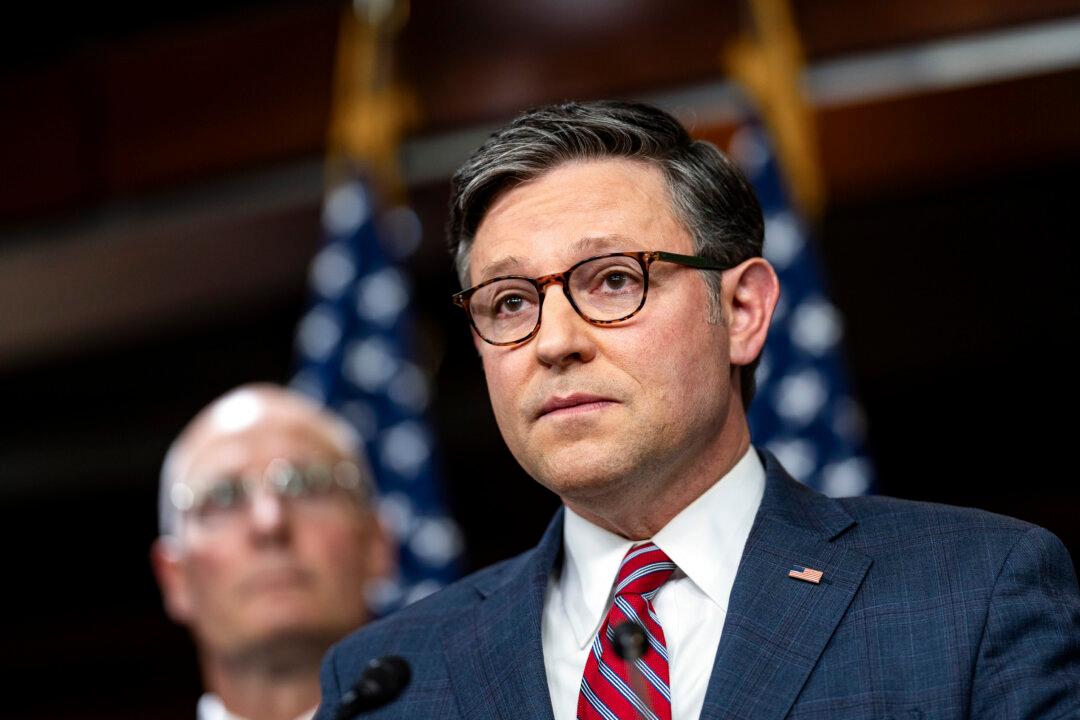WASHINGTON—House Speaker Mike Johnson (R-La.) pulled a scheduled vote on Sept. 11 on a six-month stopgap funding bill amid Republican opposition that would have likely defeated the bill.
“No vote today because we’re in the consensus-building business here in Congress. With small majorities, that’s what you do,” Johnson told reporters outside the House chamber. “We’re having thoughtful conversations, family conversations within the Republican conference, and I believe we'll get there.”





